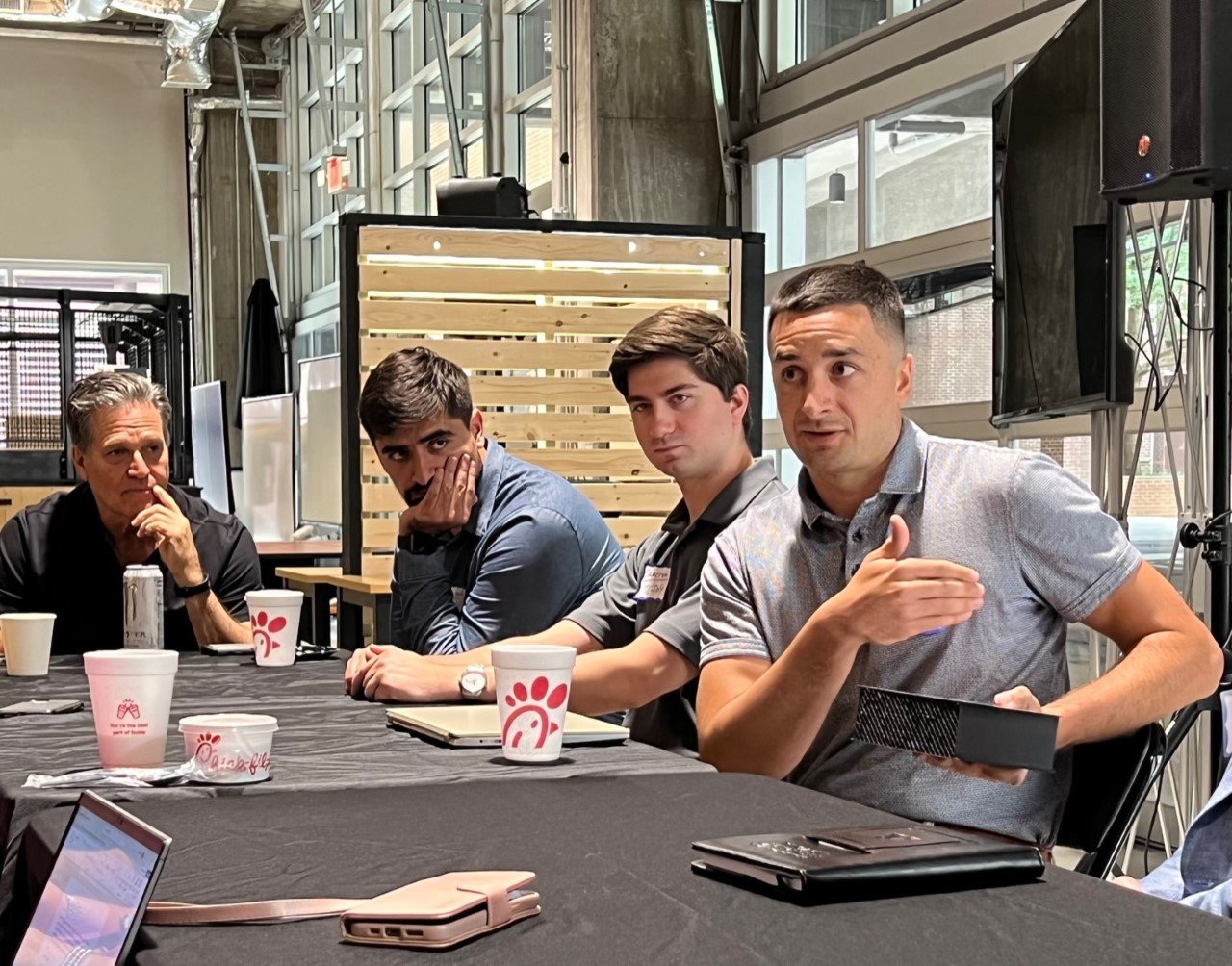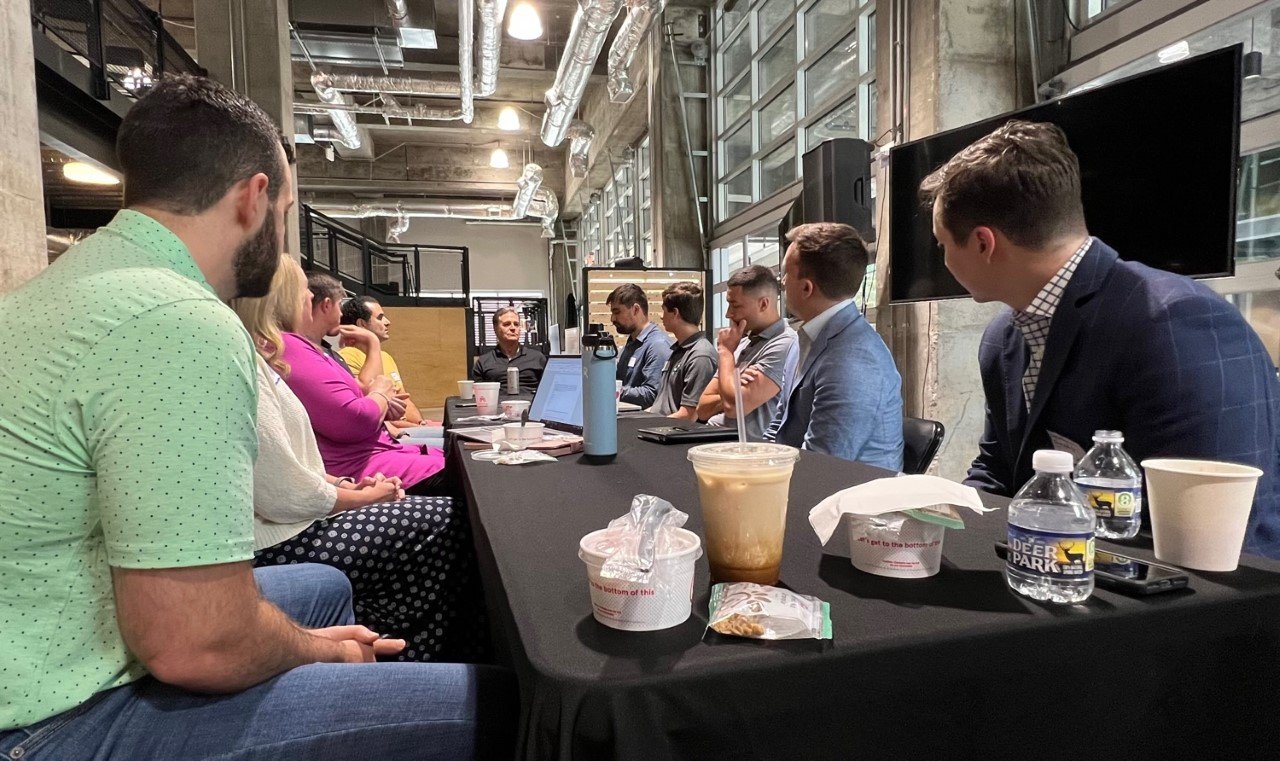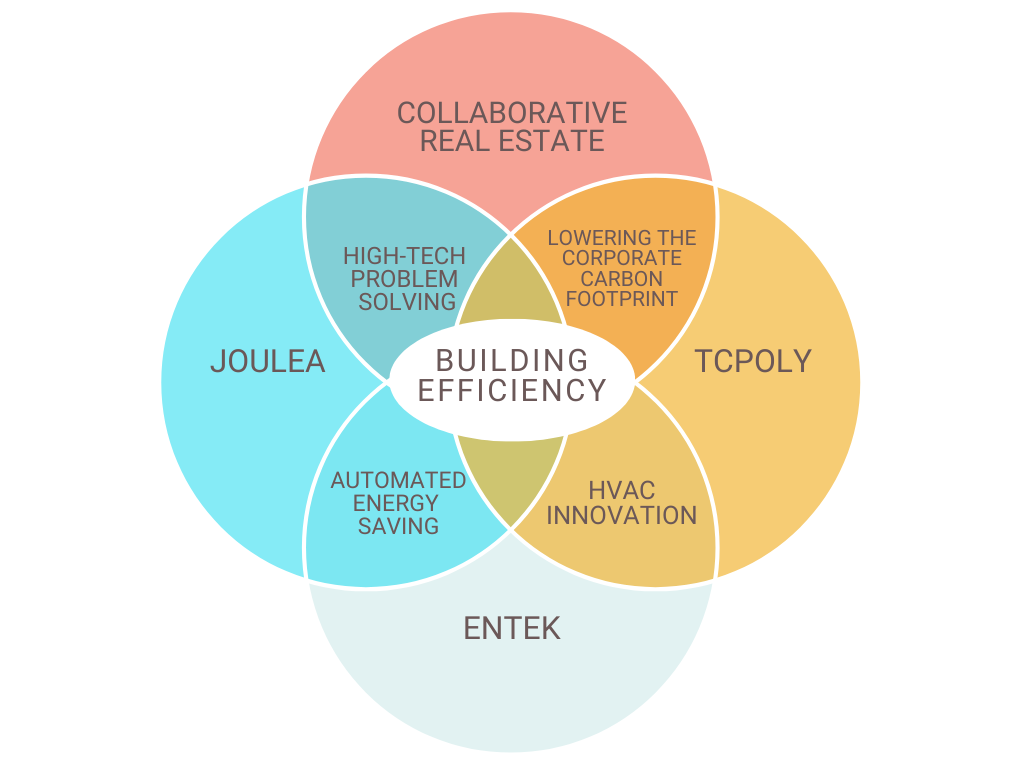Companies Come Together Over Power Meal to Discuss Building Efficiency
With green initiatives such as the usage of electric vehicles to help our carbon footprint and creating technology to reduce energy costs and consumption being top of mind as of late, we thought none better than to host a Power Meal that followed suit.
Joe Sorbet, Director of Engineering for Collaborative Real Estate, hosted the event, personally inviting local professionals and startup groups to join, including:
Ramtin Mothar – Founder, Joulea
Kiarash Ahmadi – Lead Engineer, Joulea
Matthew Smith – CEO, TCPoly
Cameron Irvin – Senior Materials Engineer, TCPoly
Dannah Hagerty – VP, Entek
Brent Burrows – Building Automation Specialist, Entek
Michael Haddow – Analyst, The University Financing Foundation (TUFF)
Scott Jackson – Chief Engineer, Collaborative Real Estate
Dominick Constanza – Asset Manager, Collaborative Real Estate
Jamie Darcy – Director of Property Management Services, Collaborative Real Estate
Jonathan Cornelius – Senior Property Manager/Activation Specialist, Collaborative Real Estate
Vicky Fowler – Special Events, Collaborative Real Estate
Madison Cook – Community Activation and Administrative Assistant, Collaborative Real Estate
While dining on a fan-favorite feast from Chick-fil-A, attendees introduced themselves, their companies, and their overall relationships with building efficiency. As Joe led the discussion around eco-conscious efforts and the hopes of a sustainable future for commercial facilities, he talked about the vast impact even the smallest of changes can make: “It’s good for the planet, society, the tenants, and the building.”
Team members of Joulea, a software platform that reduces energy costs and consumption in commercial buildings, jumped in immediately, sharing that their company can identify building issues in under a day – something that would normally take a typical engineer over 100 hours to do. Then Joulea can take those findings and present solutions to building owners.
Founder Ramtin Mothar further explained how they use a building engineering model to create an "energy digital twin" of a facility. They use previous data from building utilities to check their accuracy and described how their services can be leveraged to increase building efficiency, give recommendations on HVAC upgrades, and serve as a useful tool when buying or selling a property. On the topic of working with Collaborative Real Estate, and Joe specifically, Ramtin cited “we have been learning a lot from each other” and will continue to do so.
In fact, working together is what we’re all about. Matthew Smith, CEO of TCPoly, shared how Joe has already been such an exceptionally helpful source of information and his team looks forward to continuing this collaboration. In fact, the Centergy One building in Tech Square will be the initial pilot property for TCPoly’s newest energy recovery project. Founded in 2017, TCPoly developed the world’s first thermally conductive 3D printing filament. This heat converter could actually help to achieve greater than 80 percent energy recovery! As TCPoly works tirelessly to increase people’s awareness of indoor air quality, their 3D-printed heat exchanger uses thermal energy storage on the top of the building to disperse cool or warm air, depending on the time of year. This project is being funded through the National Science Foundation (NSF), as well as tax credits that support solar energy and Department of Energy (DOE) programs. Matthew reinforces this sentiment of working together, stating, “it takes a giant team of innovators to make it all happen.”
Dannah Hagerty, VP of Entek, weighed in as well. As part of a HVAC, building automation, and energy services company, Dannah touted how “[Collaborative Real Estate is] the most forward-thinking customer” and for other companies, this type of innovation “isn’t even on their radar.”
Conversations centered around connecting even further continued. For instance, through a partnership with TCPoly, Joulea could present more solutions and have a better method of tracking progress and accuracy. Meanwhile, TCPoly could possibly help create solutions for those weak points that Joulea identifies. To better showcase how all of these amazing companies are coming together for a common cause, we created this visualization:
All in all, Collaborative Real Estate, Joulea, TCPoly, and Entek all left the Power Meal excited to continue collaborating and inspired to push toward a carbon neutral future for commercial buildings.
DID YOU KNOW?
For projects similar to TCPoly’s, there are often rebate and tax credit incentives that make the projects more affordable! In Georgia, companies can take advantage of Georgia Power's Custom Savings Program, which could lead to $75,000 per building per year, up to 50 percent of the project cost.
What are some ways you’re being eco-conscious at work or home? Let us know in the comments below.



